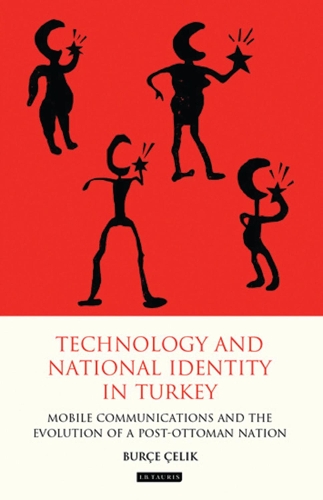
Technology and National Identity in Turkey: Mobile Communications and the Evolution of a Post-Ottoman Nation
(Hardback)
Publishing Details
Technology and National Identity in Turkey: Mobile Communications and the Evolution of a Post-Ottoman Nation
By (Author) Burce Celik
Bloomsbury Publishing PLC
I.B. Tauris
30th August 2011
United Kingdom
Classifications
Tertiary Education
Non Fiction
302.2309561
Physical Properties
Hardback
224
Width 138mm, Height 216mm
407g
Description
Since the fall of the Ottoman Empire, Turkey has seen a complete re-imagining of its political, cultural and social landscape. Burce Celik argues that technology has been integral to this transformative process, showing how take-up of modern technologies, such as the cell or mobile phone, has been embraced particularly by those who most easily absorbed new ideals about Turkey and modern Turkishness. While many studies on the cultural significance of mobile technology focus on its rational uses and incentives, A elik draws on cultural theory, psychoanalysis and the philosophy of technology to explore the bonds, desires and dependencies that Turkish citizens have in relation to the cell phone. She ultimately links a collective post-empire melancholia with a desire to re-imagine a new, ideal Turkish national identity through technology.
Reviews
'Grounded in an expansive reading of cultural theory, Celik's approach is both interpretative and humanistic in outlook. Her book will provide a new way for scholars to consider mobile phones as cultural artifacts in whatever national contexts they are working. So even thought the study is grounded in Turkey, it is in many ways more portable than most transnational studies because its grounding allows for such a sophisticated and expansive work' - Jonathan Sterne, Associate Professor and Chair, Department of Art History and Communication Studies, McGill University; 'The questions and the findings of Burce Celik's study drove me to reflect on [these] issues. 'Melancholia', which is one of the key concepts of the study, opens the door to a viewpoint which sees the collective and individual making-sense and communication needs (or desires) which the cellular telephony responds to. This view-point, in addition to being an interpretative door opening to the story of the modernization of Turkey, also enables one to analyze the pre-modern, modern and post-modern transitions, overlaps and simultaneities in general. At the same time, it is a means which holds up a mirror to the transformations of the sentiments and subjectivities in modern times.' - Tanil Bora, Editor of Toplum ve Bilim, and Iletisim Press since 1988, Author of 'Medeniyet Kaybi: Milliyetcilik ve Fasizm Uzerine Yazilar' (2006, Iletisim) [The Loss of Civilization: Notes on Nationalism and Fashism], 'Turkiye'nin Linc Rejimi' (2008, Iletisim) [The Lynch Regime of Turkey]
Author Bio
Burce Celik is Assistant Professor and Deputy Dean of the Faculty of Communication at Bahcesehir University, Turkey. She obtained her PhD from the Department of Art History and Communications at McGill University, Canada.
